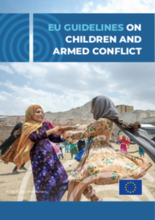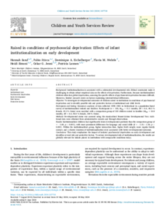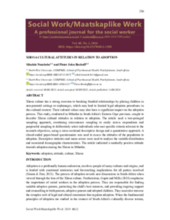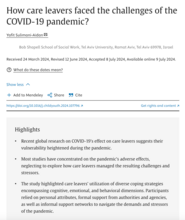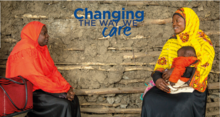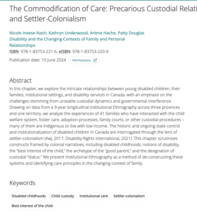Displaying 111 - 120 of 10390
Updated Checklist for the Integration of Protection of Children Affected by Armed Conflict into the Common Security and Defence Policy (CSDP) Missions and Operations
This is the Council of the European Union's Conclusions on the update of the EU Guidelines on Children and Armed Conflict, as approved by the Council at its 4038th meeting, held on 24 June 2024.
Originally published in 2018 and updated in 2024 defines the EU’s global approach to protecting children affected by wars. These guidelines are intended to serve as a practical tool to direct and assist EU actors throughout the world in their work on children and armed conflict, including other situations of armed violence by state and non-state actors, such as terrorist organisations and organised criminal groups.
Around the globe, an estimated 27 million people are exploited for labor, services, and commercial sex. Through force, fraud, and coercion, they are made to toil in fields and factories, in restaurants and residences. Traffickers prey on some of the world’s most marginalized and vulnerable individuals – profiting from their plight. Among these individuals are children who are forced into criminality, sex trafficking, child soldiering, and in some countries the forced marriage of children has been defined as a form of exploitation.
This study aimed to investigate developmental outcomes of children raised in institutions in Switzerland in conditions of psychosocial deprivation and to identify possible risk and protective factors at institutional and child levels.
This study, conducted in Mthatha in South Africa's Eastern Cape province, sought to describe Xhosa cultural attitudes in relation to adoption.
This workshop explores why it is important to support care leavers networks, and how these networks can be supported. The workshop was designed and facilitated by care leavers, with presentations from a regional network working across Africa, and networks in Uganda and Zimbabwe.
In this study the authors explored the coping resources and assets of care leavers during and following the pandemic from the perspective of 44 care leavers in Israel aged 18–29.
This brief provides an overview of Kafaalah, an alternative family care option rooted in Islamic tradition, where a sponsor (Kafiil) cares for a child (Makfuul) without severing the child's ties to their birth family. It explains how Kafaalah differs from adoption by emphasizing that the child retains their birth family name and inheritance rights.
In this chapter, the authors explore the intricate relationships between young disabled children, their families, institutional settings, and disability services in Canada, with an emphasis on the challenges stemming from unstable custodial dynamics and governmental interference.



